10+ Sample Professional Agreement
-
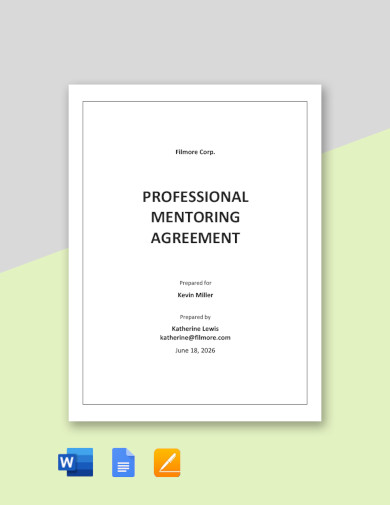
Free Professional Mentoring Agreement Template
download now -
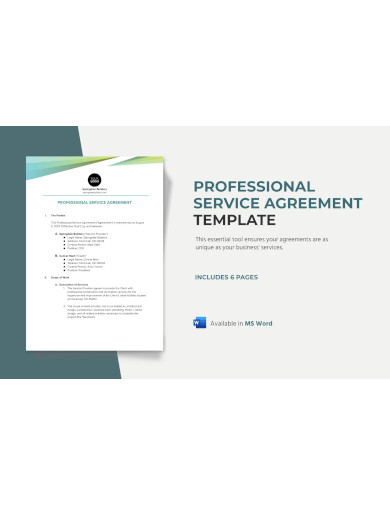
Free Professional Service Agreement Template
download now -
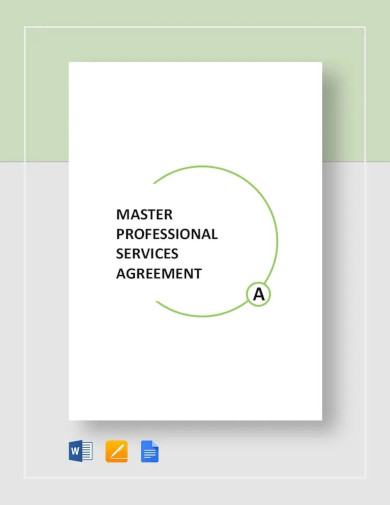
Master Professional Services Agreement Template
download now -
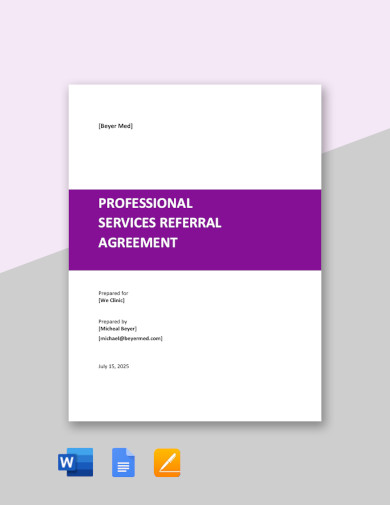
Free Professional Services Referral Agreement Template
download now -
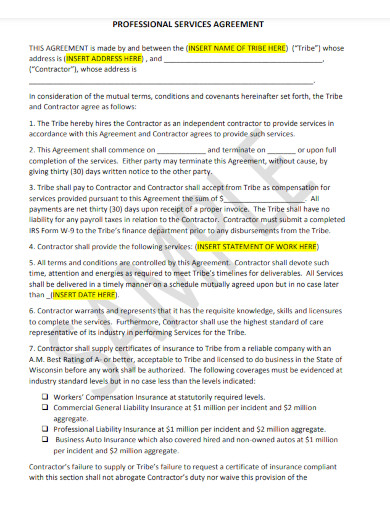
Sample Professionl Service Agreement
download now -
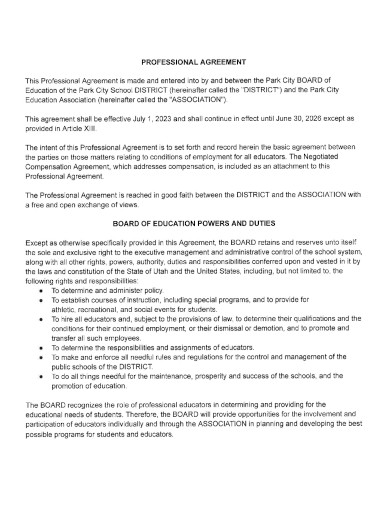
Sample Licensed Professional Agreement
download now -
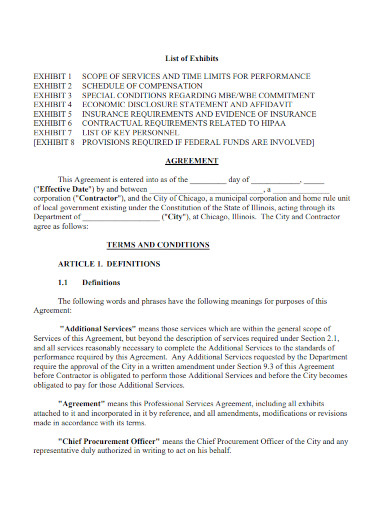
Professional Services Agreement
download now -
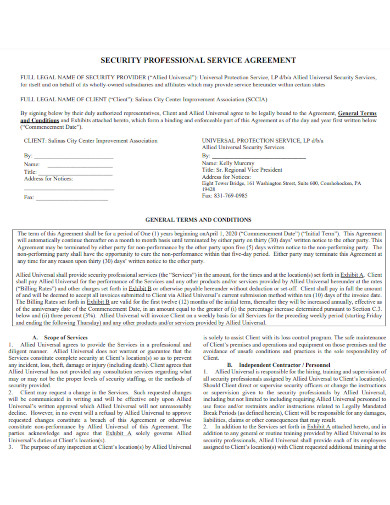
Security Professional Service Agreement
download now -
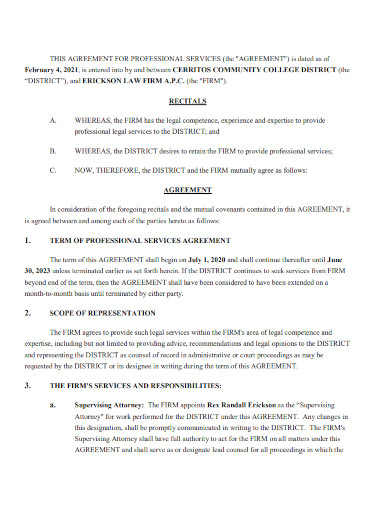
Professional Legal Services Agreement
download now -
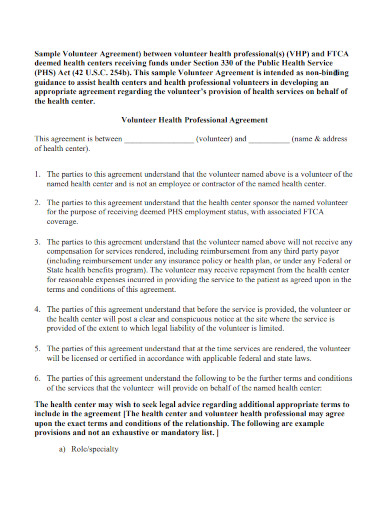
Volunteer Health Professional Agreement
download now -
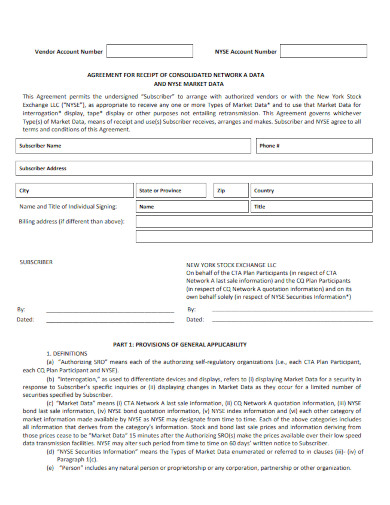
Professional Subscriber Agreement
download now -
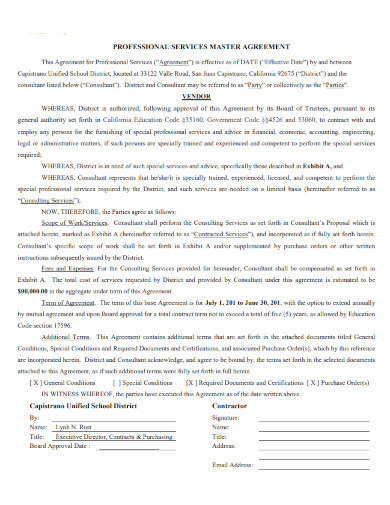
professional Services Master Agreement
download now
FREE Professional Agreement s to Download
10+ Sample Professional Agreement
What is Professional Agreement?
What is the Purpose of the Professional Services Agreement?
What are Examples of Professional Contracts?
Why is a Professional Agreement Important?
What Should be Included in a Professional Agreement?
How do Payment Terms Work in a Professional Agreement?
What is Professional Agreement?
A professional agreement, also known as a professional services agreement (PSA), is a legally binding contract between a service provider and a client. This agreement outlines the terms and conditions under which the services will be provided. In the context of professional writing or other services, it typically includes details such as the scope of work, payment terms, deadlines, confidentiality clauses, and any other relevant terms.
For instance, in your work as a professional writer, a professional agreement might specify the type of content to be created, the number of articles, the payment structure, and the rights and responsibilities of both parties. It serves as a crucial sample document to ensure a clear understanding between you and your clients, helping to prevent misunderstandings and disputes.
It’s important to customize the professional agreement according to the specific requirements of each project and to ensure that both parties agree to and sign the document before commencing work.
What is the Purpose of the Professional Services Agreement?
The Professional Services Agreement serves several crucial purposes in business relationships:
1. Define Scope of Work: It outlines the specific services or tasks the service provider will perform for the client. This clarity helps prevent misunderstandings and establishes expectations.
2. Terms and Conditions: The agreement includes terms and conditions that both parties must adhere to, covering aspects like payment terms, project timelines, and any other relevant obligations.
3. Legal Protection: By clearly defining the responsibilities and expectations of both parties, a Professional Services Agreement provides legal protection. It helps resolve disputes and minimizes the risk of legal issues.
4. Payment Details: It specifies the compensation the service provider will receive and the payment terms, including milestones or deadlines for payments.
5. Confidentiality: Many professional agreements include confidentiality clauses to protect sensitive information shared during the course of the business relationship.
6. Establishes Responsibilities: Clearly outlines the responsibilities of both parties, helping to avoid misunderstandings and ensuring accountability.
7. Risk Mitigation: The agreement may include clauses related to liability, indemnification, or dispute resolution, mitigating potential risks and providing a framework agreement for conflict resolution.
8. Professionalism: Having a formal agreement in place adds a level of professionalism to the business relationship agreement, setting a standard for clear communication and accountability.
What are Examples of Professional Contracts?
Professional contracts sample are diverse and tailored to various industries and services. Here are examples of professional contracts commonly used in business:
1. Professional Services Agreement (PSA): Outlines the terms and conditions for services provided by a professional or consulting firm to a client.
2. Independent Contractor Agreement: Defines the relationship between a business or individual and an independent contractor hired for specific services, detailing responsibilities and payment terms.
3. Employment Contract: Establishes the terms of employment between an employer and an employee, covering aspects such as salary, benefits, job responsibilities, and termination conditions.
4. Non-Disclosure Agreement (NDA): Ensures confidentiality regarding sensitive information shared between parties during a business relationship or collaboration.
5. Partnership Agreement: Outlines the terms of a partnership, including profit-sharing, responsibilities, decision-making processes, and exit strategies for partners.
6. Freelance Agreement: Similar to an independent contractor agreement, it specifies the terms of a freelance relationship, covering scope of work, payment, and project timelines.
7. Service Level Agreement (SLA): Commonly used in the IT industry, it defines the level of service a client can expect from a service provider, including performance metrics and responsibilities.
8. Consulting Agreement: Similar to a Professional Services Agreement, it details the terms and conditions for consulting services provided by a consultant or consulting firm.
9. Sales Agreement: Outlines the terms of a sale between a buyer and a seller, including product or service details, pricing, and delivery conditions.
10. Confidentiality Agreement: A broader term encompassing NDAs, it ensures that sensitive information shared between parties is kept confidential.
Why is a Professional Agreement Important?
A Professional Agreement is crucial for several reasons:
1. Clarity and Understanding:
It defines the scope of work, expectations, and responsibilities of both parties involved in a professional relationship. This clarity helps prevent misunderstandings and ensures that all parties are on the same page.
2. Legal Protection:
A well-drafted Professional Agreement serves as a legally binding document. It outlines the rights and obligations of each party, providing a legal framework that can be enforced if disputes arise.
3. Risk Mitigation:
By clearly outlining terms, conditions, and expectations, a Professional Agreement helps mitigate risks associated with the provision of professional services. It establishes a basis for managing potential issues and conflicts.
4. Setting Expectations:
The agreement sets clear expectations regarding deliverables, timelines, and quality standards. This helps manage the client’s expectations and provides a benchmark for the service provider to meet or exceed.
5. Payment Terms and Conditions:
The agreement specifies the payment terms, including the amount, method, and schedule of payments. This helps avoid payment disputes and ensures that both parties are in agreement on financial matters.
6. Confidentiality and Privacy:
If applicable, the agreement may include confidentiality clauses to protect sensitive information shared during the course of the professional relationship. This safeguards the interests of both parties.
7. Professionalism and Credibility:
Having a formal agreement in place demonstrates professionalism and adds credibility to the business relationship. It signifies a commitment to transparency and ethical business practices.
8. Dispute Resolution:
The agreement often includes clauses specifying the procedures for resolving disputes. This can save time and resources by providing a structured approach to addressing conflicts.
9. Termination Conditions:
In the event that either party needs to terminate the agreement, the document outlines the conditions under which termination is allowed. This helps manage the conclusion of the professional relationship smoothly.
10. Customization for Specific Needs:
Every professional relationship is unique. A Professional Agreement allows parties to customize terms and conditions based on the specific requirements of their collaboration, ensuring a tailored and fair arrangement.
What Should be Included in a Professional Agreement?
A comprehensive professional agreement should include details such as the parties involved, scope of services, payment terms, timeline, confidentiality clauses, termination conditions, intellectual property rights, and dispute resolution mechanisms.
How do Payment Terms Work in a Professional Agreement?
Payment terms specify how and when the service provider will be compensated. This includes the agreed-upon rates, payment
In summary, crafting a professional agreement requires meticulous attention to detail. By delineating clear terms, outlining the scope of work, and establishing transparent communication, both service providers and clients can foster a successful partnership Agreement. This guide equips you with essential tips for creating effective professional agreements, ensuring a harmonious and mutually beneficial working relationship Agreement.
